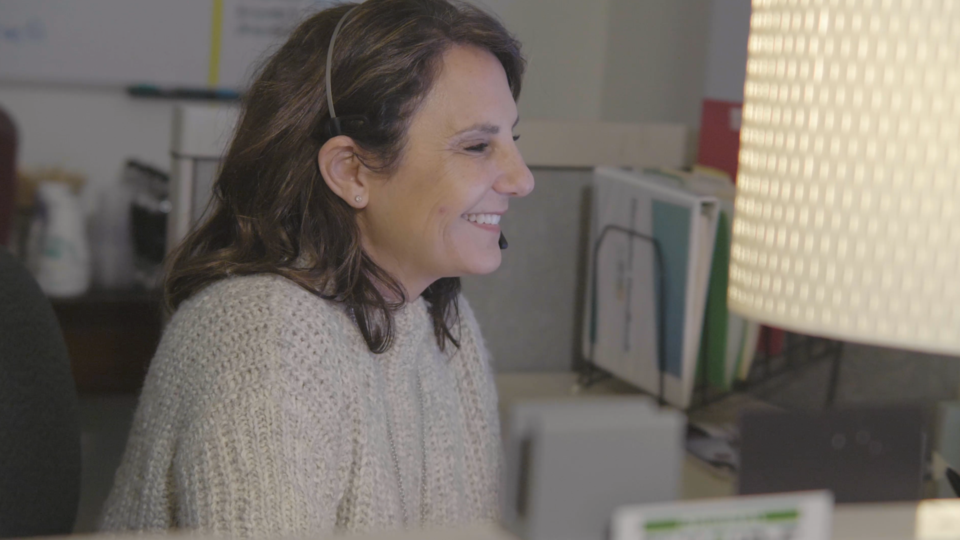As the country rolls out social distancing measures due to the coronavirus (COVID-19), North Texans are facing a new reality that may prove to be stressful for some people. Fear and anxiety about the pandemic can be overwhelming and cause strong emotions in children, teens, and adults.
Cami Fields, LMSW, director of outreach and education at Dallas-based nonprofit Grant Halliburton Foundation, offers tips and resources for children, adolescents and adults coping with this challenging time during the shelter-in-place orders:
Tips for Coping (children and teenagers):
- Take a break. Our society is inundated by information overload – the COVID-19 outbreak has exacerbated that. Find time in your day to put your phone down and stop consuming news and information about the virus. You need some time away from it to breathe.
- Connect. It can be hard to nurture your relationships when you aren’t seeing your peers anymore. This is where the beauty of social media and the internet can be so wonderful! Check on your friends, have a virtual dinner date, chat about what shows you’ve been watching – don’t put your friendships on the backburner; you need each other now more than ever.
- Find joy. During a time of so much uncertainty and stress, find small things that bring you joy. This could be going for a jog, painting, drawing, writing, singing, playing music, doing yoga, making videos, or anything else that you enjoy. These positive outlets should not be underestimated; sometimes when you least “feel like” doing them, is when you need them the most.
- Speak up. If you are overwhelmed and unsure of how to feel better or stop worrying, talk to a trusted adult about how you’re feeling. Oftentimes, expressing your emotions and talking about how you feel makes you feel better even when the situation or problem hasn’t changed. You don’t have to feel what you feel alone.
- Sleep. It can be hard to make your sleep a priority. There are countless distractions and barriers to getting good sleep, but it can be a huge factor in your mood, emotional stability, and positive thinking. Start a nighttime routine that you do every night to alert your body that you are about to go to sleep; this can include things like washing your face, drinking a glass of water, doing a 5-minute meditation, putting your phone away, or lowering the lights.
Tips for Coping (adults):
- Create routines. So much is out of control and unpredictable right now. Strive for consistency and predictability where you can in your home.
- Validate feelings. It is easy to try to make someone feel better by saying, “at least…” comments or trying to put a silver lining on things. Sometimes our kids need to be able to express themselves and be validated that what is going on is hard and it is okay to feel what they feel.
- Model healthy stress relief. Show your kids that even when times are hard, you can use positive activities to relieve your stress. Don’t try to hide your worry – be honest with them about how you are feeling but show them positive ways to manage it. More is caught than taught.
- Connect. During a time of social distancing and quarantine, it is more important than ever to nurture your connections and have a support system. Don’t underestimate the power of checking in on someone and letting them know you care.
- Self-care. We all know that you must put on your own oxygen mask first before you can help someone else. Don’t expect yourself to do everything for everyone and neglect yourself. Take some “me time,” do something you enjoy, replenish your energy.
Additional North Texas Resources:
Here For Texas Mental Health Navigation Line
972.525.8181
granthalliburton.org/navline
Created by Grant Halliburton Foundation, the free Navigation Line is open Monday-Friday from 10 a.m. to 6 p.m. The helpline assists individuals of all ages in finding the appropriate mental health and addiction resources, including Telehealth options. The Navigation Line will remain open during the pandemic. Spanish language assistance is also available.
Grant Halliburton Foundation’s Pandemic Resources Page
granthalliburton.org/pandemicresources
This page includes other mental health websites, helplines, information about the virus and articles on how to cope. It will be updated as the pandemic continues.
Grant Halliburton Foundation’s Resources for Teens Page
This page includes websites, podcasts, apps, and crisis lines that are all relevant and safe for teens.




